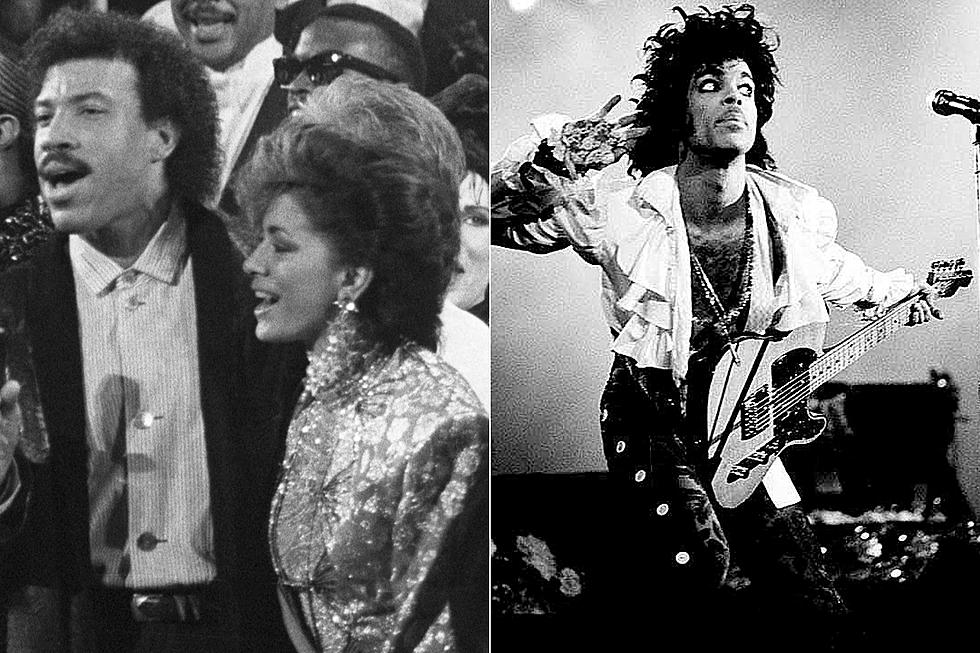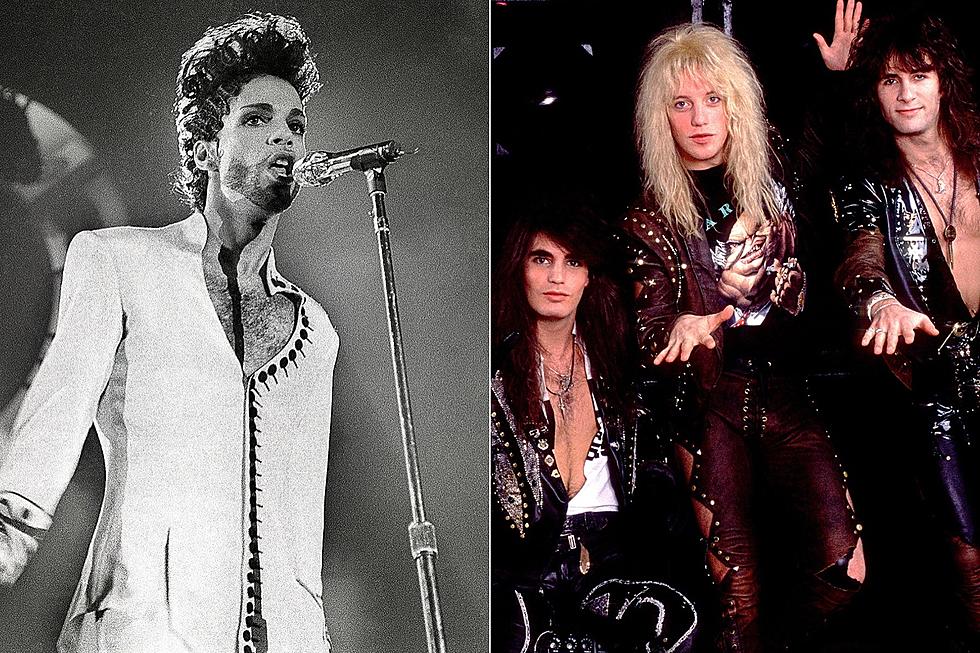
Prince Shames the Greedy on ‘Money Don’t Matter 2 Night’
Prince's world view tended to erase the accepted boundaries, whether that was sex and spirituality or race and gender roles. This nervy anti-traditionalism inevitably came up against one of the most deeply held, longest-running prejudices of them all: status.
With "Money Don't Matter 2 Night," Prince definitively aligned against classism, against the focus on material things rather than acceptance. For a person who felt that nothing should divide us, money – as this fifth single from 1991's Diamonds and Pearls so forcefully argued – shouldn't matter at all.
It does, of course. And that's what sparked this message song.
Written with Rosie Gaines during the first Gulf War, and presented in the same austere, brutally frank fashion as "Sign O' the Times" from a few years before, "Money Don't Matter 2 Night" didn't shy away from tough, very timely questions. After all, even those soldiers lucky enough to make it home back then found the U.S. locked in a recession. Prince placed the blame for all of it squarely on the shoulders of every-day avarice, of capitalism out of control, even as he called for the return of our better angels.
The stories remain as searing, and as relevant, as ever: There's the degenerate gambler, stuck on the down-side of a boom-and-bust cycle. (Prince filled in the margins with a glimpse into his private life, as the unlucky lover can't even scrape up enough money to "treat his lady right.") Then, we meet an entrepreneurial idealist who is thwarted again and again by "snakes in every color, every nationality and size."
By the end of "Money Don't Matter 2 Night," Prince has returned to the gambling motif – but this time, the U.S. was using future generations as the ante. He asked the obvious (is oil really worth going to war over?) then offered a clever lyrical twist: Prince's third verse ends with a cloud of pollution enveloping a child, making clear the bitter irony of giving up so much for something that's killing the planet anyway.
All of it was presented without artifice. Other than a low-fi flattening of his voice when he reached certain high points – in actuality, a recording error that Prince decided was cool enough to stand uncorrected – "Money Don't Matter 2 Night" was a straight-forward trio-based recording with Michael B. and Levi Seacer.
Similarly, the characters (and his solution) were framed in the simplest, most general of ways – at least in the studio version. Prince admonished everyone to make sure "your soul's alright." He reminded us to focus on the big picture: "If long life is what we all live for," Prince sang, "then long life will come to pass."
Watch Spike Lee's Video for 'Money Don't Matter 2 Night'
"Money Don't Matter 2 Night" gained a striking specificity, however, in the accompanying Spike Lee-directed video. Prince gave the director free rein on the set. In fact, he didn't even appear in the clip, which instead focused on a poverty-stricken black family amid images of the haves (a lush political gala, a president playing golf, power brokers in their garish palaces – all of them Republicans) and the have-nots (destitute citizens sleeping in the shadow of the Capitol, those fruitlessly seeking work, beat-down soup-kitchen patrons).
"To tell somebody who is starving or homeless that money don't matter and just be glad you're alive – people have to know what's really going on out there," Spike Lee told the Sun-Sentinel in 1992. "This whole family is existing on peanut butter. Yes, she wants to give them something more – and maybe a real summer vacation instead of a trip to Coney Island. Maybe a better school, better clothes, too."
Unfortunately, the video tended to make a song focused on universal themes – and universal inclusion – feel much smaller, more corrosively partisan. (Prince wasn't talking about us vs. them, so much as us vs. our baser instincts.) It's easy to see how Lee's axe-grinding choices may have contributed to a disappointing chart finish for "Money Don't Matter 2 Night." Despite being one of the very best songs on Diamonds and Pearls, it stalled out at No. 23 rather than becoming the album's third Top 5 hit.
Prince later issued a re-edited, less-politicized video featuring a performance with the New Power Generation, and that version finally garnered some airtime on MTV. (His label pushed for the change. "When they saw [the initial video], it was like, 'Whoa! Where's Prince at?'" Lee remembered.) But the damage was already done. In some circles, "Money Don't Matter 2 Night" had become nothing more than a musical cudgel which Lee decided to wield against his ideological enemies.
The song actually speaks to far larger themes – living ethically, even when surrounded by the greedy and power mad – and it actually echoes Prince's career choices: He put his proverbial money where his mouth was, of course, trashing his own commercial opportunities by changing his name to an unpronounceable symbol and then walking away from Warner Bros.
Similarly, "Money Don't Matter 2 Night" was never meant to be something so obviously sectarian. Instead, it's a moment which shares the broad community consciousness – and, importantly, the timelessness – of earlier works by geniuses like Marvin Gaye and Curtis Mayfield. This remains Prince's heartfelt socio-economic manifesto, and no political party could hope to contain it.
Watch the Second Video for 'Money Don't Matter 2 Night'
More From Ultimate Prince










